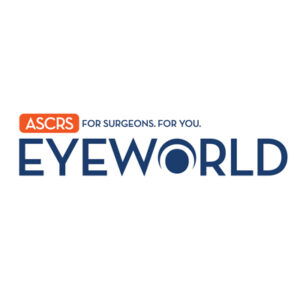ASCRS News
April 2020
All surgical specialties, particularly ophthalmology, are facing steep across-the-board cuts to reimbursement—through a reduction in the conversion factor—if the Centers for Medicare and Medicaid Services (CMS) 2021 policies for evaluation and management (E/M) go into effect without modification. ASCRS has joined with the American College of Surgeons and the surgical coalition to advocate that the increased standalone values for E/M services should also be applied to postoperative E/M services included in 10- and 90-day global codes. Our original position also included the elimination of the E/M add-on code. However, due to the COVID-19 pandemic and potential to tap into the COVID-19 stimulus package, the surgical community advocated for the suspension of budget neutrality requirements for E/M policy changes for 2021 included in the 2020 Medicare Physician Fee Schedule final rule, which would increase the value of postoperative E/M services included in 10- and 90-day global codes, implement E/M add-on codes for patients with chronic disease, and prevent major reimbursement reductions to surgery to pay for primary care increases.
Unfortunately, this was not included in the final stimulus package, the CARES Act, but ASCRS and the surgical community plan to continue to advocate to get this included in future COVID-19 packages. In addition, we are encouraging CMS to implement this change, without a congressional mandate, to alleviate the negative financial impact the pandemic is having on physicians and their practices. Below are complete details on the multipronged advocacy campaign.
Increasing the value of postoperative E/M services in global codes continues to be a top priority for ASCRS. We continue to partner with the American College of Surgeons and the surgical community on a multipronged campaign that includes legislative, legal, and communications
The issue
Effective 2021, CMS finalized a policy to increase the value of standalone E/M codes. CMS did not, however, apply that same increase to the value of postoperative E/M visits included in 10- and 90-day global codes, despite advocacy from ASCRS, the American Medical Association, the surgical community, and bipartisan members of Congress. In addition, CMS finalized an E/M add-on code for patients with complex or chronic disease that was a holdover meant to counteract expected payment reductions for primary care from its now-abandoned proposal to collapse E/M levels 2–4.
ASCRS and the surgical community maintain that CMS’ policy not to increase the global surgery postoperative E/M visits violates current law by creating an illegal specialty payment differential. The Medicare statute requires that physicians providing the same services be paid the same. Therefore, since 10- and 90-day global codes include E/M—such as the three postoperative visits included in the recently revalued cataract code—they should be paid at the same rate. In addition, every time standalone E/M visits have been increased in the past, so have those in global codes.
The impact on ophthalmology
ASCRS partnered with the surgical community to study the potential impact of CMS’ E/M policies for 2021. Because of the budget neutral nature of the physician fee schedule, the increase in value of the standalone codes and the add-on will have a significant redistributive impact: shifting value from surgical specialties to primary care. Since the E/M codes and add-on will add so many relative value units (RVUs) to the fee schedule, CMS will have to decrease the conversion factor considerably to maintain budget neutrality. This will reduce the reimbursement of every single code in the fee schedule. While primary care will still see a significant payment increase over 2020, all surgical specialties and those that do not perform E/M will experience a payment decrease. Ophthalmology is one of the hardest hit specialties.
Despite concern about the impact of the E/M increase, it is important to remember that any ophthalmologist or optometrist who bills a standalone E/M beginning in 2021 will be reimbursed at the higher level. Eye codes are not currently impacted by this policy; however, we are advocating that they also be increased since they are based primarily on E/M codes. In addition, if we are successful in increasing the value of postoperative E/M codes, a significant portion of the RVU of the recently reduced cataract code will be restored for 2021.
Multipronged surgical coalition advocacy
Increasing the value of postoperative E/M services in global codes continues to be a top priority for ASCRS. We continue to partner with the American College of Surgeons and the surgical community on a multipronged campaign that includes legislative, legal, and communications elements.
Legislative: We will continue to advocate that Congress include, in future COVID-19 legislative packages, the suspension of budget neutrality for E/M policy changes effective 2021.
Legal: We are working with the surgical community to conduct a legal analysis of the policy to determine whether there is a legal case—if we are not successful with the legislative strategy—to be made against CMS since the policy violates current law. Legal action, however, would have to wait until the policy is implemented to demonstrate harm to surgeons.
Communications: The surgical coalition will be embarking on a public relations campaign that will communicate the importance of preserving access to surgery.
Contact
Nancey McCann: nmccann@ascrs.org



